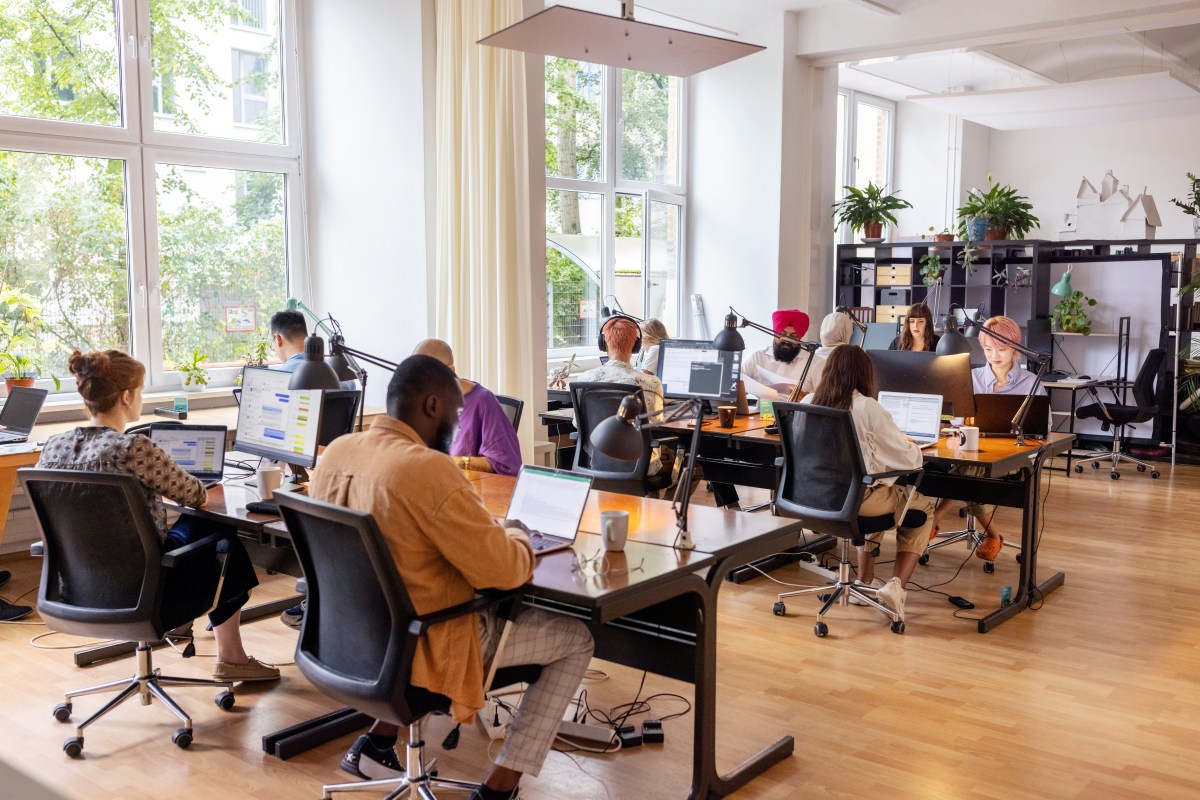Work attire is evolving, but it’s not for everyone
Workwear has slowly evolved over time, becoming more casual, and according to research, it’s all thanks to hybrid work conditions.

Streetwear might be shunned in an office setting, but “preppy streetwear” has made it acceptable in some settings. Photo: Getty
Research from IWG, a flexible workspace provider, found that 79 per cent of hybrid workers dress differently now that their work environments are more flexible.
The research was carried out by Censuswide and more than 1000 hybrid workers aged over 18 from the US responded.
In a press release it was noted that rigid expectations for work attire are a thing of the past in some industries.
Additionally, 69 per cent of hybrid workers said they believe what you wear to work reflects the title and level of role within a hybrid work organisation.
Among the generations, millennials are the fastest to adapt, with 86 per cent already doing so, followed by Gen X at 77 per cent and Gen Z at 74 per cent, whereas half of all boomers were reluctant to switch up their wardrobe.
The key driver behind the shift is comfort, IWG said.
More than half of the respondents wanted clothes they could use both for work and in other aspects of their lives.
Of course, dressing more casually does not equate to not looking your best.
Dr Briony Lipton and Sulagna Basu published research on “COVID Casual” and how workwear evolved during the pandemic.
They noted that despite women working from home dressed more casually in all industries, for the most part they agreed on the importance of their appearance regarding their performance at work.
Although the pandemic may have brought the issue of evolving dress codes to everyone’s attention, Lipton and Basu noted that it has been something that has happened over a long period of time.
“Dress codes have changed and evolved over the years with diverse combinations of dress code policies among organisations,” they wrote.
“In Australia, workplace dress codes have gradually become more casual especially over the last decade although a majority still believe in the importance of dressing for success.”

The way we work has changed, as has our work attire. Photo: Getty
Should workwear change?
Times might be changing and people are more willing to dress down a little for work to complement their evolving work conditions, but our expectations may keep some industries more rigid.
Professor Peter Holland, a professor of Human Resource Management and director of the Executive MBA at Swinburne University of Technology, says he personally hasn’t seen a huge shift.
He teaches mostly postgrad, so often his students come from their jobs to his classroom and they are usually dressed in professional attire.
Although workwear is evolving, Holland says there are still expectations and, in some cases, repercussions on dressing a certain way.
For example, people will go see a lawyer or an accountant and expect them to be dressed in a suit.
Of course, what someone wears when they are in the comfort of their own home is totally up to them, but there is research to suggest dressing for work while at home can be beneficial.
Research done amid the pandemic found that some people preferred to dress smart for a virtual work meeting.
“People said that what they missed during COVID was the actual delineation between work and not going to work,” Holland said.
Should personality be expressed through clothes?
When you’re going for a job interview, you want to stand out, however, Holland says it’s not best to let your clothes do all the talking.
Clothes can be a way to express your personality, but they shouldn’t be the focus of a job interview, because the recruiter or company is trying to find someone best for the job.
“Your talents, and your personality, will shine through in other ways,” he said, but added a potential employer cannot discriminate based on appearance.
In saying that, some of the trends IWG identified in its research can translate to work-appropriate attire.
New York City stylist and creative consultant Diana Tsui partnered with IWG to figure out what trends are prevalent among hybrid workers.
“Perhaps no trend is better for hybrid working than our current social media obsession with quiet luxury,” Tsui said.
Think sleek clothing and accessories that are of good quality. Quiet luxury is wearable and makes for ideal business casual attire.
Alternatively, there’s dopamine dressing, which “reflects an optimistic, post-pandemic attitude towards joyful dressing”.
This way of self-expression could be in the form of a bright sweater or statement earrings, Tsui said, which could still be considered work appropriate, only fun.
Streetwear might be shunned in an office setting, but “preppy streetwear” has made it acceptable in some settings.
“You only need to look to the runway as proof that streetwear has been the major driving force in men’s fashion over the last few years,” Tsui said.
“Tailoring paired with sporty comfort is an easy, approachable way to elevate and modernise your office wardrobe.”
This story first appeared in our sister publication The New Daily.




